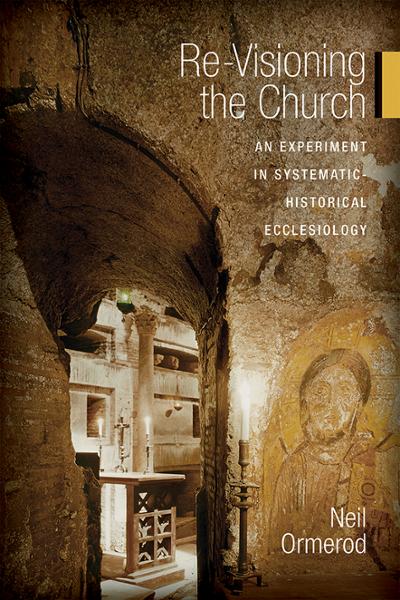Endorsements
"I warmly welcome the publication of this substantial and original contribution to ongoing theological reflection on the church. Neil Ormerod is well equipped to integrate social-scientific categories and solid historical research into a systematic-theological ecclesiology, and he does so in an exemplary fashion. His application of Lonergan’s methodological precision shows the power and continuing generative capacities of Method in Theology. Re-Visioning the Church invites and contributes to collaboration in the ongoing tasks of systematic theology."
—Robert Doran
Marquette University
"Ormerod’s account of the historical emergence of the discipline of ecclesiology makes for deceptively easy and attractive reading! It is in fact an exercise of bringing explanatory clarity to a discipline that is all too often explored in merely descriptive terms. This book provides a foundation for a subsequent moment where one can turn to the present and ask ‘Where should the Church go next?'"
—Gerard Whelan
Pontifical Gregorian University
"Re-Visioning the Church is the outcome of over a decade of research and writing towards the end of constructing a systematic historical ecclesiology. This study is a deep engagement with the wide range of sub-disciplines within theology and indeed with the historical, social scientific, and philosophical realms of discourse. The fruits of such engagement are applied so creatively in this volume, which will inspire much further discourse in the rapidly growing field of ecclesiology. Ormerod has rendered that field a great service through this undertaking."
—Gerard Mannion
Georgetown University
“Re-Visioning the Church is a landmark in contemporary ecclesiology. Ormerod sets a new baseline for the discipline by successfully integrating the social sciences within a historically-conscious theological framework. He is thereby able to present a much more nuanced and balanced critical appreciation of the ecclesial development of the Catholic Church than has been possible previously. Key ecclesiological doctrines are presented in their historical context; their enduring value and truth can emerge with much more precision, even as particular limitations are clarified and brought to light. The historical review in the second part of the book sets the stage for the kind of fruitful enquiry by which other scholars can supplement and deepen the insights of the author. Ormerod has written a book that is technically precise, has immediate practical consequences, and is accessible to the larger public; I will be able to make use of it in my own academic research as a theologian, in my teaching and formation of future ordained and lay Church ministers, and in my pastoral service of men and women in the wider Christian community. The ‘empirical/historical, critical, normative, dialectic and practical’ ecclesiology which Ormerod inaugurates here makes possible the kind of creative collaboration among theologians and Church leaders that will reorient presently sterile debates and promote the discovery of authentic solutions to ecclesial challenges.”
—Gilles Mongeau, S.J.
Regis College at the University of Toronto

